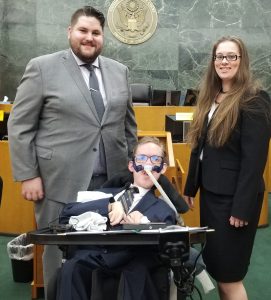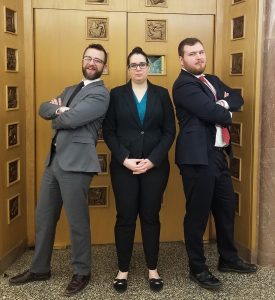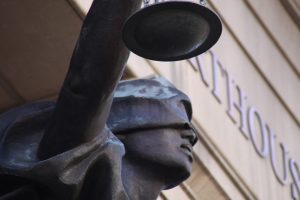The gender balance of the parties in Wisconsin is different than during recent past presidential elections. A significant number of men have changed their partisanship, shifting from the Democrats to the Republicans. Wisconsin women’s preferences haven’t systematically changed.

During the period 2012 through 2016, male registered voters in Wisconsin split 48% Republican – 42% Democratic (this includes independents who lean to a party). Since 2016, the balance has been 53% Republican compared to 36% Democratic. Women have remained a consistent 52-53% Democrat and 38% Republican.
This shift has had two main consequences. First, the relative size of the Democratic party has declined. From 2012-16, Democrats (including leaners) made up 48% of all Wisconsin registered voters; 43% were Republicans. Now, the Marquette Law Poll finds an even more narrowly divided electorate–44% Democrat and 45% Republican. Second, the Wisconsin Democratic party has become proportionally more female. Fifty-eight percent of self-identified Wisconsin Democrats were women in 2012-16. This has grown to 62% in the years since then.
Female Democratic primary voters have somewhat different preferences than their male counterparts. This graph below shows the support for each candidate from our February 2020 poll of Wisconsin women and men who intend to vote in the Democratic presidential primary in April.

Substantial gender gaps are apparent for some candidates, including Bernie Sanders, Amy Klobuchar, and Elizabeth Warren. But the margins of error are inevitably quite large due to the small subsample sizes of a single poll.
In order to maximize cases, the next graph pools all Marquette Law Poll surveys from August 2019 through February 2020. This months-long average does not reflect the most current levels of support for each candidate, but the direction of the gender differences remains the same. Elizabeth Warren is clearly more popular with women (18% support compared with 12% from men). Likewise, Bernie Sanders is more popular with male Democratic primary voters (25% compared to 18% among women). Amy Klobuchar and Joe Biden might be more popular with women, but the differences are small. Tulsi Gabbard receives support from about 3% of male Democratic primary voters and 0% of female voters. Pete Buttigieg’s support is the most evenly divided between men and women of any active candidate.




 [For Black History Month, we invited some of our alumni to provide their reflections as guest bloggers of the month. This post is from Kristen D. Hardy L’14.]
[For Black History Month, we invited some of our alumni to provide their reflections as guest bloggers of the month. This post is from Kristen D. Hardy L’14.]